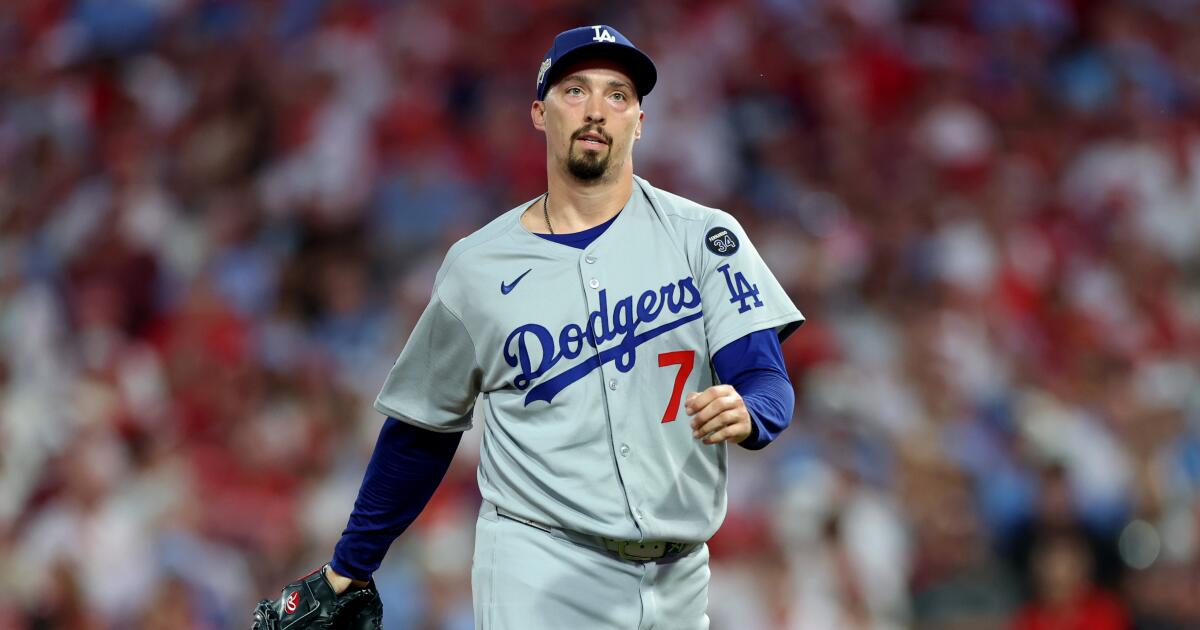PHILADELPHIA — The Dodgers are hoping this NLDS doesn’t return to Philadelphia again.
But if it does, Shohei Ohtani would start in a winner-take-all Game 5 next Saturday.
Despite the three runs Ohtani gave up in the second inning of Game 1, the team was overall encouraged by how he bounced back — and how he attacked the Phillies’ big three hitters of Trea Turner, Kyle Schwarber and Bryce Harper in particular. That trio was 0-for-nine against him with five strikeouts.
“Shohei did a fantastic job of moving the ball around,” Dodgers manager Dave Roberts said, describing Ohtani’s plan of attack — in which he got ahead early in counts by being aggressive in the zone, especially with secondary pitches — as something for the Dodgers’ other pitchers to replicate over the rest of the series.
“You’ve got to kind of change locations. You’ve got to use the front to back. I thought his curveball was as good as I’ve seen it. But you have to have these guys honor the fastball. They hunt locations. They hunt velocities. And you’ve got to keep them guessing. You just can’t be predictable. And I thought yesterday we did a fantastic job of not being predictable.”
The bigger question, for whenever Ohtani takes the mound again, is whether he will hit better the next time he plays both ways in a game.
At the plate, Ohtani was 0-for-four in Game 1 with a walk and four strikeouts. He went down swinging on three pitches in his first at-bat, then took a called third strike in the three after that.
Roberts conceded that Ohtani’s focus on pitching might have hampered his approach as a hitter.
“I do think that on days that Shohei pitches, a large amount of the focus is on the pitching, which I understand,” Roberts said. “I know [Phillies starter Cristopher] Sánchez was good. But yeah, I mean, kind of trying to weather that three-run inning and kind of stay in there on the pitching side, I’m sure had some kind of bleed in to the effect on the bat.”
During the regular season, Ohtani’s hitting numbers were worse than normal when he also pitched. In his 14 pitching starts, he hit just .222 (albeit with four home runs and 12 RBIs) and struck out in more than one-third of his plate appearances. And in many of those games, he wasn’t even making full-length starts.
The postseason, of course, adds another dynamic given the extra scouting work that goes into pitching in October.
Still, in his postgame press conference, Ohtani reiterated why fulfilling both roles remains a priority for him.
“The reason why I’m a two-way player is because that’s who I am, and it’s what I can do,” Ohtani said through interpreter Will Ireton. “And also, at the same time, it’s what the team wants. So that’s the reason why I’ve been doing this.”
